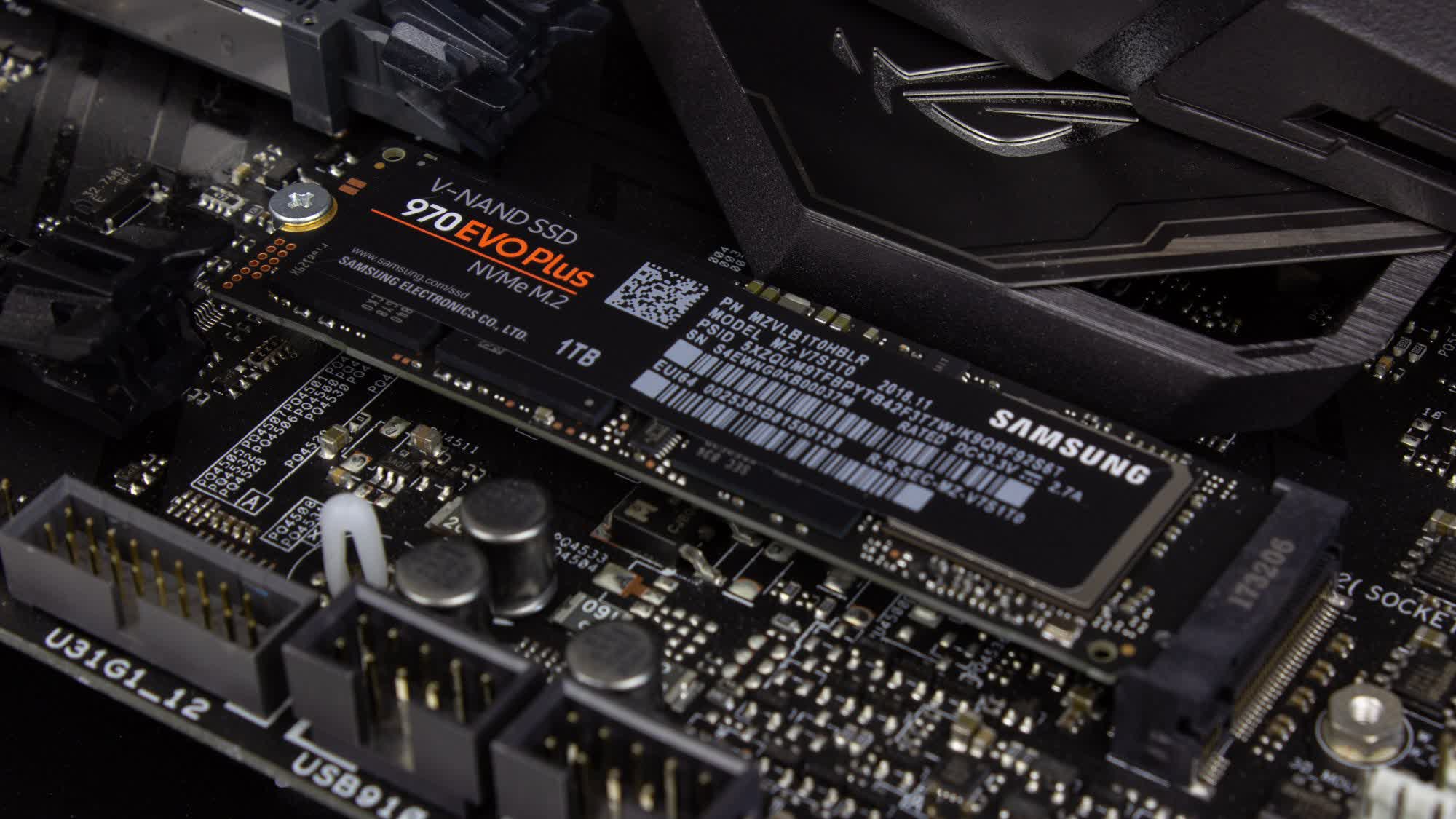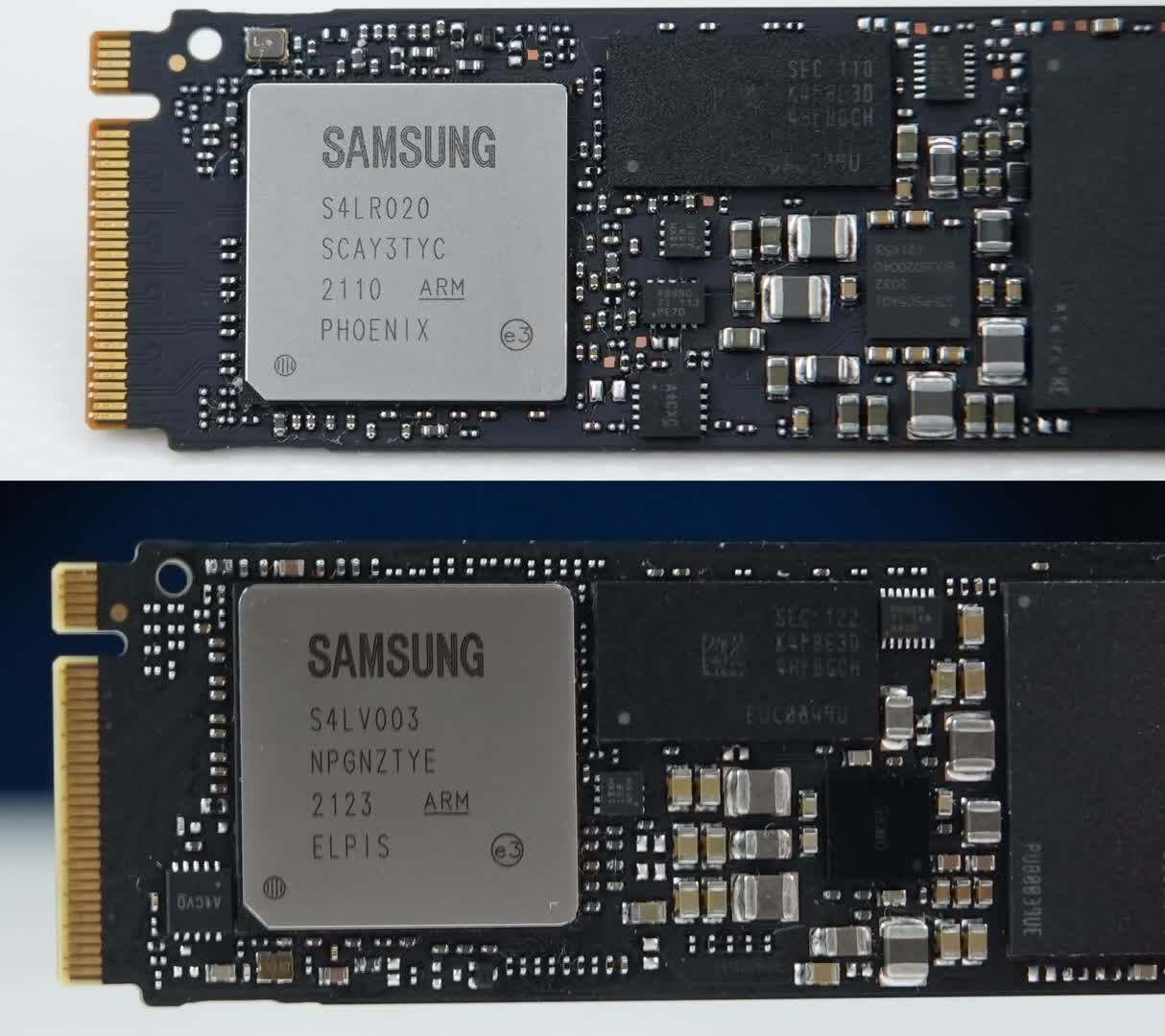A hot potato: Samsung has been caught changing the controller model used inside their 970 Evo Plus SSDs without updating the public spec sheet or publicizing the performance ramifications. It’s a sad thing to see, given the position of high esteem their drives have been held in for years.

The ‘new’ 970 Evo Plus was first tested by a Chinese YouTube channel (whose video on the topic does have English subtitles, if you want to watch). It’s unclear if the new model is exclusive to China or Asia, or if it’s being distributed globally.
Its only distinguishing feature is a controller branded Elpis, instead of Phoenix. The drives look otherwise close to identical, and they’re labeled the exact same -- 970 Evo Plus 1TB -- with only a small difference in part number denoting the drives as ‘technically’ different: MZVLB1T0HBLR becomes MZVL21T0HBLU on the sticker atop the drive.
As far as we know, the part number isn’t on the package, so you can’t distinguish them that way. The package is different though. The original’s box is oriented horizontally, while the new box sits vertically. And the label on the controller is blurred out in the picture of the drive on the front of the new box, which is something of a confession of guilt.

Photo credit: 潮玩客
In terms of performance, the new drive won’t be much worse for most users. But it has different strengths and weaknesses.
In a basic CrystalDiskMark run, the new drive was slightly faster across the board and even took a significant lead in some shallow write tests. In other synthetic benchmarks they traded blows, although the differences between them were minor. Their read speeds were all pretty much the same.
The real differences between the two crop up during sustained write loads. In a synthetic 200 GB copy test, the original drive sat at 1.8 GB/s up until 40 GB, then it dropped to 1.5 GB/s. The new drive began at 2.6 GB/s before dropping to 0.8 GB/s at 115 GB.
In a Windows File Explorer test, copying Blu-ray movies, both drives started out at about 2.5 GB/s. About 15% of the way through, the original drive dropped to 1.5 GB/s. The new drive worked its way down to 2.2 GB/s steadily before dropping suddenly to 0.8 GB/s at 80% of the way through. In the end, it took the two drives the same length of time to copy the 155 GB file.
On the left is the original, and on the right is the new model.

Credit: 潮玩客
Judging by the benchmark results, Samsung has tripled the new 970’s SLC cache to make up for the slower controller. It’s not the worst solution, but it will become less effective as the drive fills up.
A second potential issue with the new drive is thermal output. During the benchmarks, which admittedly are rather extreme, the Elpis controller brushed up against 100° C. The Phoenix controller was more comfortable in the low eighties.
Although the new 970 Evo SSD isn’t bad, it isn’t okay for Samsung to leverage the reviews and reputation of the original 970 to sell the new one. They’re fundamentally different products that suit different use cases, and that should have been denoted by a change of name.
Believed to be a consequence of chip shortages, Western Digital was also caught recently changing the NAND flash in one of its budget SSDs with a lower-grade version that underperforms compared to the original -- an unfortunate misleading behavior that's slowly turning into a trend.
https://www.techspot.com/news/90998-samsung-swapping-parts-their-970-evo-plus-ssds.html